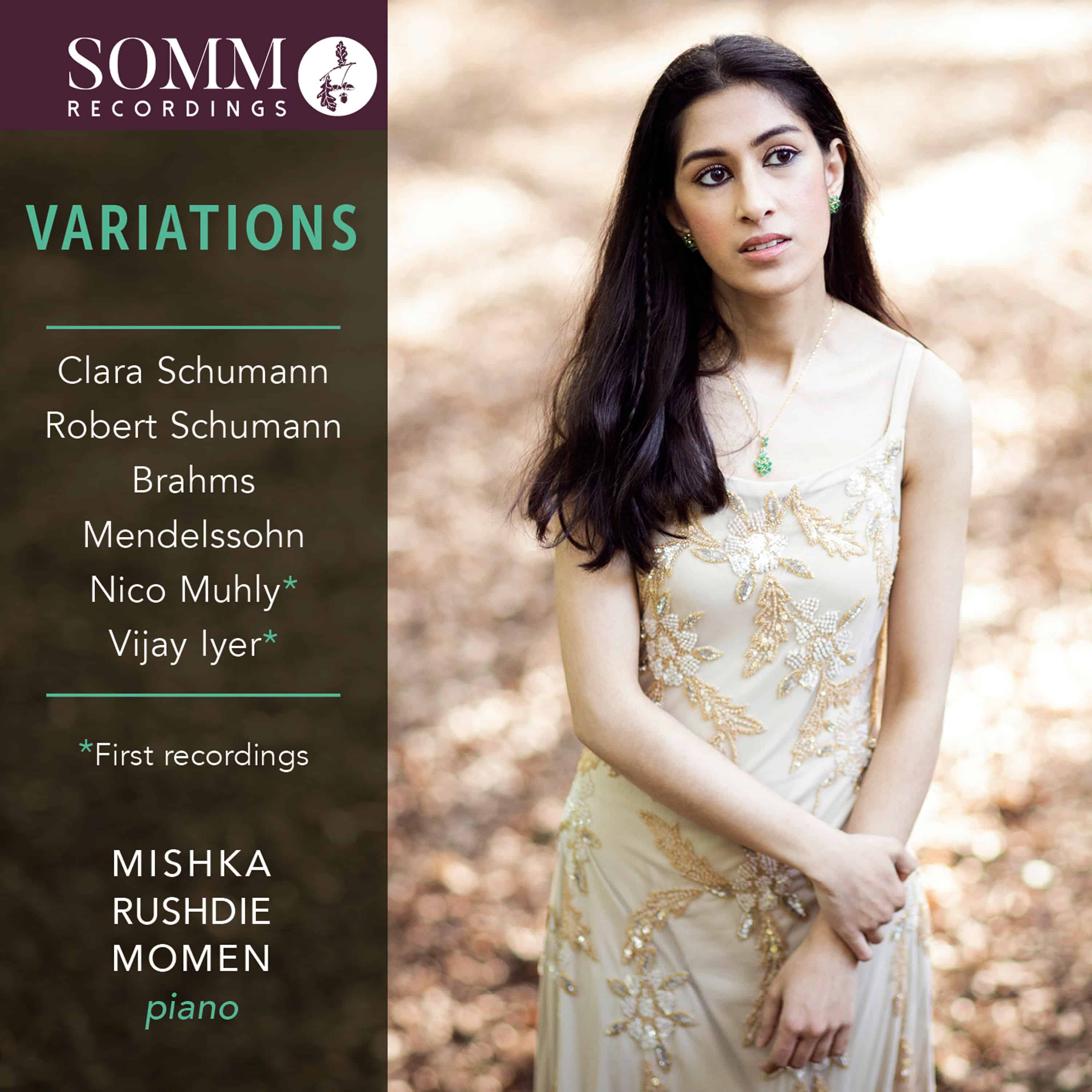
We met Mishka Rushdie Momen at the Sheffield Chamber Music Festival via her recital Romantic Piano. Here on her recording of variation sets on SOMM, she confirms her clear talent.
The booklet notes are some of the most illuminating I have ever read, and they are by Momen herself.
Clara Schumann’s Op. 20 variations are built upon N0. 4, “Albumblatt,” of Robert Schumann’s Op. 9 Bunte Blätter of 1841. Here’s Richter in that movement:
Clara’s variations are absolutely magical, and it is difficult to imagine a more musical performance than this. Listen to the inter strength of the Poco animato (Variation V) with its bell-like octave descents, and how that contrasts with the limpid Variations VI, and then on to the delicious curlicues of Variation VII:
Schumann took a theme by Clara (written when she was 13!) and created not a set of variations, but a set of Impromptus (from her Romance variée, Op. 3).
Here’ s Clara’s original, well played by a pianist I had not previously encountered, Jozef de Beenhouve:
Momen has a way of drawing the listener in. The Impromptus are fabulous, none no more so than the final, 5-minute offering, with a scope that takes in both caprice and grander gestures. Momen does seem to understand the very core of how variation form works, which means her performances are magnificently convincing. This is core Robert Schumann in its pronounced Innigkeit, . Schumann’s formal model was Beethoven’s Eroica Variations: both begin with a focus on the bass of the theme, and both end with a fugue (in Schumann’s case, enclosed within a Gigue). Here’s that final movement:
Momen’s description of the Muhly is worth quoting in toto:
Nico Muhly’s Small Variations is, for me, a squeezing of th most heightened moments of both Shumann’s Bunte Blätter theme and the Brahms Op. 9 Variations (built on hat very theme) into a five-minute chorale with an explosion halfway through it.
This is a fascinating piece. It opens with a chorale, before that outburst (based on the second variations of Op. 9). So let’s hear the second variation played be a wonderful pianist we really should hear more of today, Andor Foldes:
The Mendelssohn Variations sérieuses appeared in Momen’s Sheffield recital. No qualms about finger-work on the recording, however. Just listen to the touch in Variation VIII, how exact it is, how carefully considered the tone:
A beautiful performance, followed by the second work by a living composer: Hallucination Party (from a Theme by R. Schumann), a “fever dream” (Momen’s words) by Vijay Iyer. Momen refers to the first movement – there are three – as “like a DNA sequencing of the theme”. The piece is once more “after” Schumann’s Op. 99:
The piece was commissioned by Momen and premiered by her at the Bruno Walter Auditorium in Lincoln Centre, New York on October 16, 2019, and is published by Schott. The second movement whispers up high, the music gradually swirling as an unrestricted starts to permeate the music:
The finale is remarkable, a swirling storm. Imagine taking Schumann’s theme enclosed in a snow globe and giving the orb a good shake, and you might get something like this:
The Brahms set that closes the disc was inspired by Clara’s set that opens the disc (and is based on the same theme); Brahms also quotes the Clara Schumann Op. 3 (see above) at the end of the tenth variation.
Momen’s performance is lovely. She sculpts it in a way perfectly aligned with Brahms, just as she aligned herself perfectly with first Clara, then Robert, Schumann. Here are Variations 10 and 11 (which Brahms presented together to Clara, titling them “Rose und Heliotop haben geduftet” (Rose and heliotrope smelled sweet). On the recording, they elide beautifully:
There is an innate musicality to Momen’s playing that makes it no surprise that one of her principal mentors has been Sir András Schiff. She attended the Purcell School, and aged around 14 started studies with Imogen Cooper (later, she studied withJoan Havill at the Guildhall). He path has been unconventional in hat there is no ascent via competitions; her playing seems richer for it.
The disc Variations is available at Amazon here. Spotify below (Variations appears not to be on iDagio)









